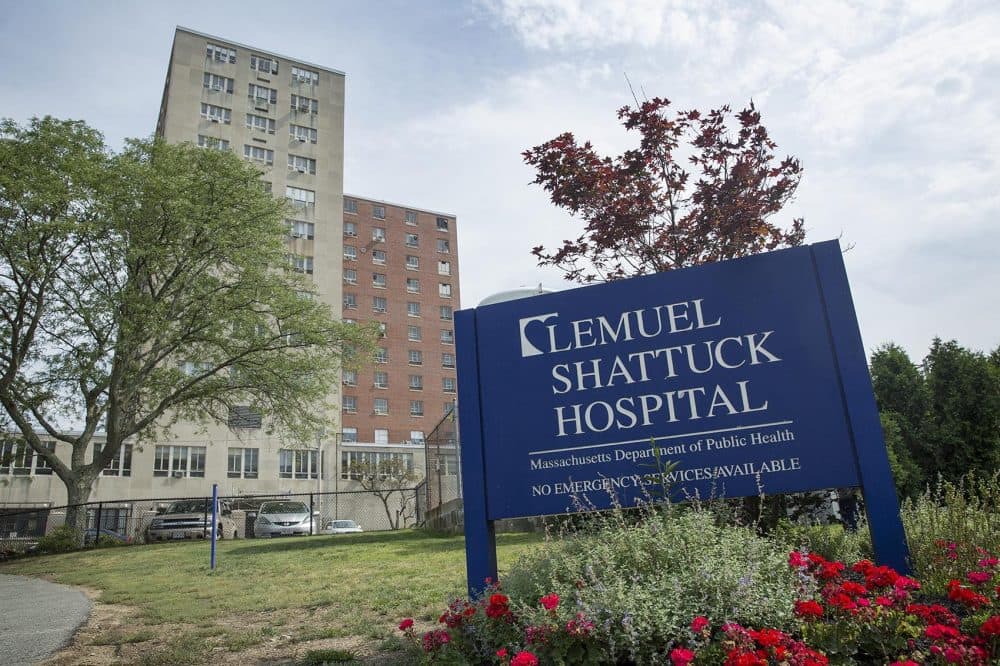Advertisement
State ends housing programs for those in 'Mass. and Cass' encampment

With federal COVID funding running out, Massachusetts health officials are closing two housing programs designed to shelter those who were living in a large tent encampment removed by Boston officials late last year.
The programs were part of a broader strategy that seemed to help reduce the numbers of people living on the streets while facing mental health and substance use disorders, and address problems such as increasing violence in the encampment. State officials said they would offer housing alternatives to people currently in the programs.
As of Monday, state officials said they will stop admitting new residents to 18 cottages on the grounds of Lemuel Shattuck Hospital. They plan to shutter the cottages this summer. Since 2022, the cottages have provided temporary homes for people receiving mental health care, treatment for substance use and other services while seeking stable, longer-term housing, a type of program known as "transitional housing."
The state is also preparing to end a transitional housing program at the EnVision Hotel in Boston by the end of the year.
The programs were created to provide assistance for those who had been living in the tent encampment in the "Mass. and Cass" area of Boston, near the intersection of Massachusetts Avenue and Melnea Cass Boulevard. Neighbors and area business owners had urged the city to dismantle the tents.
State Department of Public Health officials said they're phasing out the programs as federal American Rescue Plan Act funds, put in place during the COVID pandemic, have run out. They said they have increased other transitional housing space in Suffolk and Middlesex counties to continue providing services to those struggling with homelessness, mental health issues and addiction.
"We have been working on this plan, knowing that this initiative was temporary," said Deirdre Calvert, director of the Department of Public Health's Bureau of Substance Addiction Services. "We've been laser focused on making sure over the last few months to increase permanent capacity to ensure that we were ready to make the move."
Twenty-two people currently live in the cottages at Shattuck Hospital, according to state officials. They are staying in temporary structures as part a program that also offers security and wraparound services such as counseling and addiction treatment. State officials said workers will help the cottage residents find other housing.
The program was intended as a "bridge" to a more permanent solution, according to Joshua Cuddy, director of Interagency Coordination at the Executive Office of Housing and Livable Communities.
"What we know is an evidence-based best practice," he said, "is permanent supportive housing," which provides an apartment or other permanent housing alongside a range of services tailored to each individual.
The program at the EnVision Hotel, run by the nonprofit organization Victory Programs, provides temporary housing for up to 50 people in hotel rooms, while staff works to help secure permanent housing for the residents. The program is considered "low-threshold housing," meaning there are fewer barriers to admission such as being sober or having certain mental health conditions.
"Victory Programs is working with all parties to find the best solution that guarantees uninterrupted services for all residents," said the organization's Chief Program Officer Melinda Giovengo in an emailed statement. "Our strategic planning is focused on ensuring every resident has access to secure, healthy, and safe housing without any disruptions.
Calvert said the state is adding 48 new transitional housing units, for a total of 586 permanent low-threshold housing spaces across Massachusetts.
Clarification: This story has been updated to state sooner that alternative housing will be offered to people currently served by the two programs shutting down and that the programs are part of a larger strategy.
This article was originally published on April 29, 2024.
